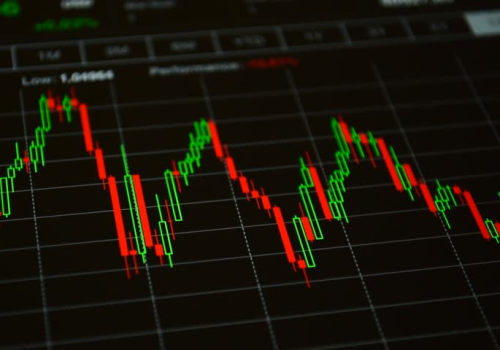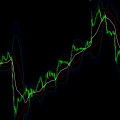Are you looking for the best money management rules to help you maximize your wealth? You've come to the right place! In this comprehensive overview, we'll discuss the various strategies and tips you should follow to ensure that your finances are managed properly. From budgeting to investing, we'll cover it all so that you can take control of your financial future. Read on to learn the essential money management rules you need to know!Risk Management: Risk management is an essential element of successful Forex trading. It involves setting a stop-loss and take-profit orders, as well as position sizing and diversification.
The goal is to limit losses and maximize gains. A risk/reward ratio is a key tool for assessing the risk of a given trade. This ratio compares the potential reward of a trade to the amount of risk taken. For example, if a trader risks $100 in order to make a potential gain of $200, the risk/reward ratio is 2:1.This means that the trader is risking the same amount to make twice as much.
Money Management Strategies: There are a variety of money management strategies that traders can use to manage their capital and reduce their risk. These include the Martingale strategy, which involves doubling down after a loss, and the Kelly criterion, which involves increasing or decreasing the amount of capital invested depending on how successful previous trades have been. Each of these strategies has its own advantages and disadvantages, so it's important to understand them before deciding which one is right for you.
Psychology of Money Management:
Having a positive attitude towards trading is essential for success in Forex trading.Fear and greed can lead to impulsive decisions, and traders should remain disciplined and stick to their strategy. It's important to keep in mind that trading is a long-term game, and it's essential to remain focused on the long-term goals rather than short-term wins or losses.
Money Management Tools:
There are a variety of money management tools available to traders which can help them make informed decisions and maximize their profits. These include budgeting software, which can help traders stick to their financial plan, and risk calculators, which can help traders assess the potential risks of any given trade.These tools are invaluable for traders who want to ensure they are making smart decisions with their money.
Money Management Strategies
Money management strategies are essential for successful Forex trading. Different strategies can help traders to better manage their money and increase their chances of success. Some of the most popular money management strategies include the Martingale strategy and the Kelly criterion.Martingale Strategy
The Martingale strategy is a popular money management technique that involves doubling your bet after a loss. This strategy can be very effective in certain situations, as it allows traders to increase their profits and minimize losses.However, it also carries a higher risk since the potential losses can quickly add up.
Kelly Criterion
The Kelly criterion is another popular money management strategy that is based on the idea of maximizing gains while minimizing risks. This strategy involves calculating the expected value of a trade, and then allocating a percentage of your available funds to the trade accordingly. This strategy can help to reduce risk while still allowing for potential gains.Money Management Tools
When it comes to money management, there are a variety of tools available to traders. Budgeting software and risk calculators are two of the most popular tools used by traders.Budgeting software helps traders track their spending, income and investments. It can be used to help set budgets and stick to them. Risk calculators can be used to estimate the potential gains and losses of a trade before it is executed. They can also be used to determine what size position to take in order to keep risk in check. Other tools that can help with money management include portfolio tracking software, which allows traders to track the performance of their portfolios over time; trading journals, which provide traders with insights into their trading activity; and trading bots, which can automate some of the trading process.
Risk Management
Risk management is an essential concept when it comes to trading in the Forex market. It involves understanding the potential risks associated with trading, and developing strategies for mitigating those risks. Risk management is all about managing your capital so that you can stay in the game and make consistent returns. The main goal of risk management is to protect your capital and reduce the potential for losses. This involves looking at the different types of risks associated with trading, such as market risk, liquidity risk, and leverage risk.By understanding these risks, traders can develop strategies for minimizing their exposure. For example, traders can use stop losses and limit orders to reduce their exposure to market risk. In addition to reducing risk, traders should also focus on maximizing their returns. This involves taking a more active approach to trading, such as using a trading system or employing a strategy that is designed to generate consistent profits. By understanding the risks associated with trading, traders can develop a strategy that is best suited to their individual needs. By following a disciplined approach to risk management, traders can ensure that they are able to stay in the game and make consistent returns.
By understanding the different types of risks associated with trading, and developing strategies for mitigating those risks, traders can ensure that they are able to generate consistent profits from their Forex trading activities.
Psychology of Money Management
Having a positive attitude towards trading is essential to success in Forex trading. Having a negative attitude towards trading can lead to poor decision making, unrealistic expectations, and ultimately, financial losses. A positive attitude allows traders to remain disciplined and have a clear plan for managing money. It also encourages traders to take risks and manage their losses in a rational manner.Having an optimistic attitude towards trading is important, as it can help traders stay focused on their goals and remain confident in their abilities. A positive attitude can also make it easier for traders to accept losses as part of the process of trading. When traders have a positive outlook, they are more likely to look for opportunities and take calculated risks that can lead to greater potential returns. In addition to having a positive attitude, it is important for traders to maintain realistic expectations about the market. Unrealistic expectations can lead to disappointment and anxiety, which can cause traders to take risks that can be detrimental to their trading performance.
To prevent this, traders should understand the risks involved in trading and ensure that they are managing their money in a way that is consistent with their goals. Finally, it is important for traders to remain patient when trading. While the markets may move quickly, it is important to be patient and take the time to analyze the market and make informed decisions. This will help traders avoid taking unnecessary risks and ensure that they are making the best decisions possible. In conclusion, money management is an essential skill for all traders. By following the key principles of risk management, money management strategies, psychology of money management, and money management tools outlined in this article, traders can make informed decisions and maximize their profits.
With practice and discipline, traders will become more successful in managing their money.












Leave Reply